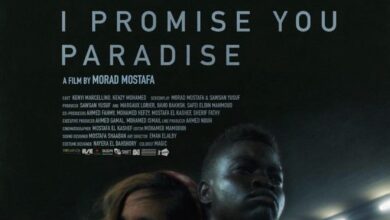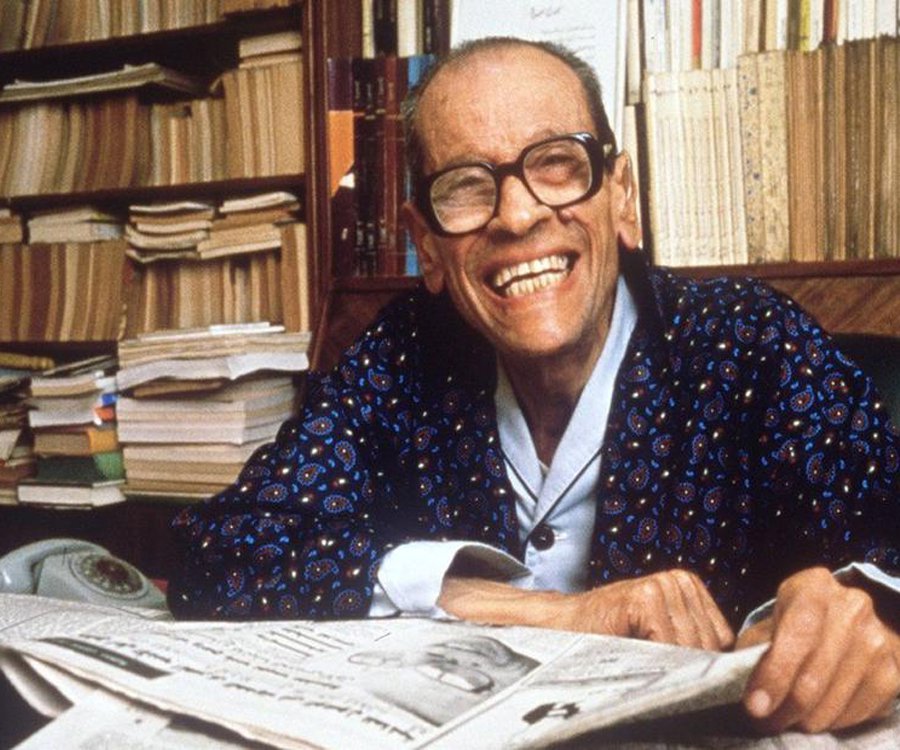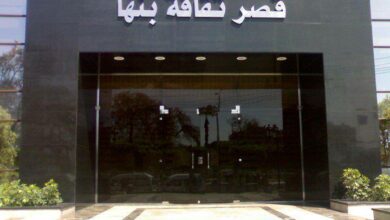Several Egyptian films produced in the last two years have challenged the notion of "clean cinema," with some forecasting the genre’s approaching demise. Notably, last winter saw a number of films present substantive humanistic stories coupled with contentious sexual themes.
With the rise in social conservatism since the 1970s, Egyptian filmmakers have confronted a growing number of critics who berate their work primarily on moralistic grounds. Since 1998, the phrase "clean cinema"–more aptly translated as "proper" or "righteous" cinema–dominated the arts scene and imposed new restrictions on freedom of expression.
Since 2008, this conservative trend has gradually begun to recede. Films like Cabaret and El Rayes Omar Harb, which deal explicitly with sensitive sexual and sociopolitical themes, are growing in number.
Cinema stars have become more willing to tackle controversial issues and to challenge cinematic taboos–including love scenes–thus breaking the decade-long proliferation of light comedies. Actress Mona Zaki broke new ground when she starred in Youssri Nasr Allah’s Ehky ya Shehrazad (2009), a cinematic exploration of women’s issues in Egyptian society. Zaki and some female colleagues–such as Mena Shalabi and Hend Sabry–have rebelled against the rules of "clean cinema," which tends to perpetuate an unjust star system that marginalizes actresses.
In 1986, Lel Hob Qesa Akhira by Raafat el-Mihi drew the ire of some critics, with a group of young lawyers requesting the film be banned due to a love scene between the protagonists (who played the roles of a married couple). Given Egypt’s long history of cinema, the lawsuit came as a surprise to many.
Yet similar incidents were repeated in the 1990s, with films like Toyour el Zalamand El Erhab wel Kabab by Wahid Hamed; Ya Donia ya Gharamiand Asrar el Banat by Magdy Ahmed Ali; Mowaten we Mokhber we Harami by Daod Abd el-Sayed; and Ganet el-Shayateen by Osama Fawzy.
“There is much more to a film than its moral aspect," said director Magdy Ahmed Ali. "Surprisingly, the recent Catholic Film Festival [held every year in Cairo] was more tolerant of my 1995 film Ya donia ya Gharami than my 2009 film Khaltet Fawzeya, which means that conservatism is one the rise."
Ali’s latest film, Asafeer el Nil, produced with funds provided by the Egyptian Ministry of Culture, portrays a love story between two middle-class adults. After a long break from directing, Osama Fawzi and Daoud Abdel-Sayed used the same grant to produce the films Bel Alwan el Tabeeya and Rasael el Bahr (2010), which dealt with the relationship between art and religion, as well as with human values and social institutions.
Ali believes the three films are driven by personal convictions on the part of the filmmakers, however, and don’t necessarily reflect an increasing openness in Egyptian cinema. As for low-quality commercial films, such as Ahasees and Bedoun Rekaba, Ali says these do not reflect a heightened appreciation for creativity or progressive thought.
“Producing movies with sensational or pornographic styles only serves to endanger the film industry," Ali said. "I’m very skeptical about associating films by Fawzi, Abd el-Sayed and myself–which target respectful audiences and explore deep social dilemmas–with other films that promote vulgarity under the guise of freedom."
On one hand, bringing art into the courtroom paved the way for attuning the audience to new modes of receiving artistic work, leading them to pay more attention to formalities when societal taboos were challenged. Films containing sex scenes, depictions of religious issues and figures, portrayals of social realities and criticisms of the political regime have all been subject to attacks in the media, and even the parliament, which resulted in fewer such films being produced. A number of famous actresses–such as Shahira, Soheir Ramzy and Soheir El Bably–ended up taking the veil and retiring from their respective acting careers.
On the other hand, Egypt’s cinema crisis and the diminishing number of film productions in the 1990s (during which the number of movies produced annually fell to around 20 from between 60 and 70 in the previous decade), along with the emergence of a new generation of young actors keen to assert their presence, impelled producers to seek new formulae in line with potential audience markets.
In 1997, the enormous success of comedy Ismailia Rayeh Gay starring Mohamed Heneidy and Mohamed Fouad paved the way for a new wave of "pop culture" blockbuster comedies that made stars of young actors like Ahmed el-Sakka, Mona Zaky, Hend Sabry, Karim Abd el-Aziz and Mohamed Heneidy.
The phrase "clean cinema" was widely used in the press and in interviews with these new stars. Unlike films featuring a “tawdry treatment of desire”–as one critic described it–the new genre capitalized on rising trends of conservatism and the need for movies that can be watched by the entire family without risk of exposure to explicit love scenes.
While these films brought in huge audiences and profits, the quality and depth of their storylines remained an issue. Not only did they conspicuously avoid any convincing or moving representations of sexual or romantic relations, but they also managed to side-step every other socially contentious topic as well.
El-Sayed thinks "clean" movies echoed producers’ need to sell to conservative audiences in the late 1990s. He believes that the widespread practice of locating cinemas inside shopping malls at this time encouraged the production of more family-oriented films.
“This stratum of Egyptians in the 1990s, hungry to consume after returning from the gulf with significant wealth, are the ones who could afford high-priced cinema tickets at the shopping mall," said el-Sayed.
However, el-Sayed went on to note the change that had taken place as the children of the 1990s became adults with different requirements and desires.
“A cultural change is happening as these generations pass through the era of Internet and independent media," he said. "They want real stories about love relations, and they aren’t too shy for the kisses and hugs that serve to enrich the dramatic situation."
In his opinion, intellectuals and critics are now courageous enough to object to the conservative thought of ten years before. He says that the adoption of "clean cinema" stylistics within the last ten years represented the exception rather than the rule, since efforts to repress the human aspect in films represented an attempt to resist the natural flow of life, which, he opines, is unstoppable.
Other critics, such as Tarek el-Shenawy, present a different evaluation of the increasing tolerance of the state censorship apparatus for sex scenes. He says that sex is no longer a taboo, since pornography has become so abundantly available on both satellite television channels and the Internet. According to el-Shenawy, the ruling political regime would not be as quick to allow red lines to be crossed if they pertained to political or religious taboos.
This argument is particularly applicable to the latest film by director Khaled Youssef, known for his confrontational tone in films such as Heen Maysara (2007) and Dukkan Shehata (2009), which dealt with the political situation in Egypt and the miserable living conditions of the country’s poor. In Kalemni Shokran (2010), Youssef abandons his severe political criticisms to present a light storyline imbued with gratuitous sex scenes and indecent anecdotes.
“You can succeed for a while," concluded el-Sayed, "but you can never control people’s consumption of all these ideas, which are flying all over the world thanks to technology."




